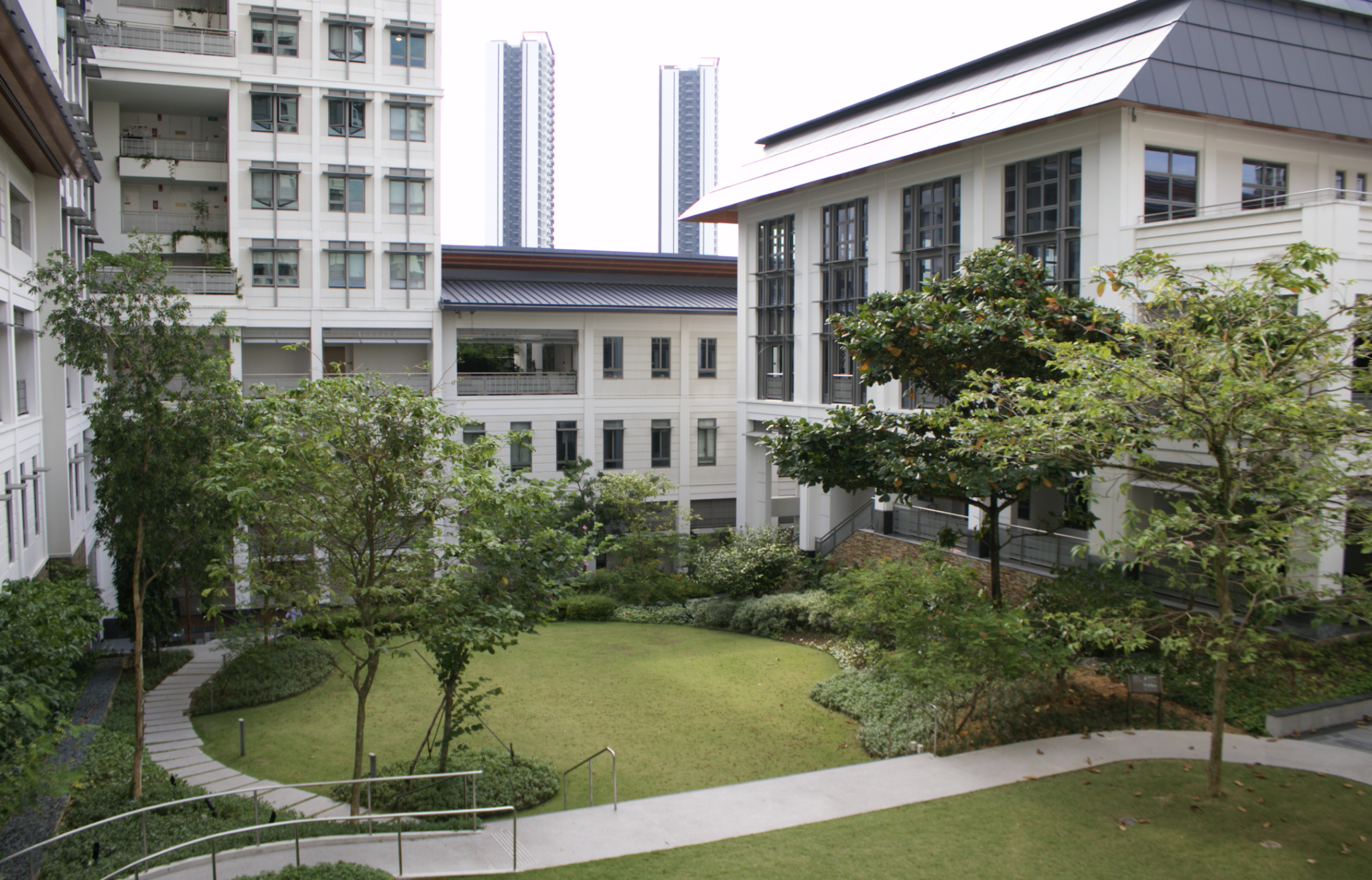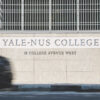Yale-NUS College to close in 2025
National University of Singapore will restructure curriculum into “New College,” removing Yale’s name from the often-contentious joint liberal arts college.

Asha Prihar, Contributing Photographer
Yale-NUS, an often-controversial collaboration between Yale and the National University of Singapore, will close its doors in four years.
This July, NUS President Tan Eng Chye GRD ’89 declared his intent to establish the “New College,” which will merge Yale-NUS College with the NUS University Scholars Programme, an existing interdisciplinary initiative. Yale’s name will be removed from the institution.
According to an NUS statement, the new program will allow more Singaporean students to access a joint liberal arts and specialized education. Cohorts will double from 250 to around 500 students, and students will learn the common curriculum and be able to access more pre-professional offerings.
Yale-NUS College was founded in 2013 with a mission of collaboration to provide a liberal arts education in Asia. But controversy clouded its creation, particularly due to the authoritarian government that rules the island nation and restricts some speech. Since its inception, Yale-NUS has been primarily funded by the Singaporean government. Yale repeatedly drew ire from critics who claimed it did not clearly articulate guidelines for free expression and nondiscrimination, and for putting its name on an educational institution beyond its control. But Pericles Lewis, vice president for global strategy and Yale-NUS’s founding president, said that Yale was pleased with the collaboration and was not the proponent of its dissolution.
Salovey similarly underscored Yale’s pride in the partnership.
“Yale takes great pride in the accomplishments of Yale-NUS College—a pioneering partnership between two leading universities to create a residentially based liberal arts college,” University President Peter Salovey wrote in a statement. “In the eight years since the College admitted its first class, it has become one of the most highly selective institutions of higher learning in the world.”
The original affiliation agreement allowed NUS or Yale to withdraw from the collaboration in 2025. Beginning in 2018, the National University began restructuring its academic offerings. NUS and the Singaporean government expressed that they wanted to offer more spots to Singaporean students; previous cohorts included a large number of students from countries across the globe, Lewis explained. This summer, the Yale-NUS governing board, to which Yale appoints six members, discussed Tan’s plan with him, and agreed to serve as an “informal partner” of the New College, Lewis said.
The National University has announced its intent four years in advance to allow all current Yale-NUS students to complete their studies, the statement added. The current Governing Board and administration will continue their role until 2025, and current students will receive the same educational offerings, financial aid and degree that previous cohorts did.
Lewis will join the planning committee for New College at the request of Salovey and Tan. Once the college has opened, he will volunteer on its International Advisory Committee. Yale representatives will have no oversight of the New College.
The college had frequently come under scrutiny for issues of academic independence and free expression. Lewis explained that the National University of Singapore is an autonomous university, but that it is largely funded by the government.
The Singaporean government places strict limits on citizens’ freedoms. Under Singaporean law, homosexual acts in public or private are criminalized and can carry a penalty of two years of jail time. The government has banned certain books and films, and requires protesters to obtain a police permit. Additionally, the country was ranked 160th in the 2021 World Press Freedom Index, out of 180 assessed countries.
While students within the college protested restrictive laws and engaged in civil disobedience, the school’s literal and figurative placement within the National University of Singapore was often difficult to forget. An event set to show a banned film at the college garnered headlines in 2014. In 2016, a member of the Yale-NUS governing board publicly defended Singapore’s sodomy law. Most recently, in 2019, the Yale-NUS course “Dialogue and Dissent” was canceled. Alfian Sa’at, course instructor and Singaporean playwright, was told that the course was insufficiently academically rigorous and could pose a legal risk to the students. Lewis subsequently investigated and did not find evidence of government coercion, but a Yale professor and prominent lawyer disputed his findings.
Still, Lewis said that questions of academic freedom were not a factor in the decision to close Yale-NUS.
“The NUS people and the government have been very supportive of academic freedom at Yale-NUS,” Lewis said. “We’ve been very satisfied with the ability of Yale-NUS students and faculty to exercise their academic freedom and have a really great experience there. That has not been a problem from our point of view.”
More than 200 faculty members from Yale have planned programs or visited the campus since its inception. Some current Yale faculty members, including Yale-NUS Dean of Faculty David Post, are posted in Singapore on a long-term basis. Others serve as visiting faculty for one or two semesters. These faculty members will likely return to Yale throughout the next four years, Lewis said.
In a statement, Yale underscored that the merger will not result in lost jobs. Tenured Yale-NUS faculty will move to a new NUS department. The National University will honor contracts of non-tenured faculty, and staff will be transferred to New College or another NUS location.
Though Lewis acknowledged that “relationships evolve,” he added that Yale-NUS alumni will continue to be involved in the Yale community, and that there is the potential for joint graduate programs and shared research.
He emphasized the close collaboration that placed Yale-NUS at the nexus of Yale and the National University of Singapore, noting that the common curriculum included both Western and Asian texts and that Yale-NUS had three residential colleges.
“Given our great pride in Yale-NUS College and our love and respect for the faculty, students, and staff who compose its extraordinary community, we would have liked nothing better than to continue its development,” Salovey wrote. “I want to offer my best wishes for the new college and express our gratitude for the generous support of the Government of Singapore in making it possible for us to partner in the creation of a model of liberal arts education that is regarded as one of the most innovative in the world—one whose DNA will live on, we trust, in new and exciting ways.”
At this time, Yale would “be happy” to consult with other national universities about creating joint colleges, Lewis said. However, international collaboration has become increasingly challenging in the current pandemic and political climate, he added.
Yale-NUS generally receives around 8,000 applications per year.








